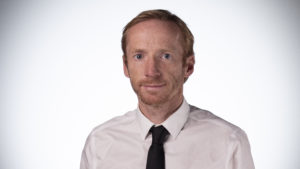September 27, 2022
 The Canadian Society for Exercise Physiology (CSEP) and the University of New Brunswick and Université de Moncton are pleased to announce the return of CSEP’s in-person annual conference! There is a great line-up of Symposia to look forward to and we’ve interviewed each presenter to give you a preview of what to expect and how attending will benefit you.
The Canadian Society for Exercise Physiology (CSEP) and the University of New Brunswick and Université de Moncton are pleased to announce the return of CSEP’s in-person annual conference! There is a great line-up of Symposia to look forward to and we’ve interviewed each presenter to give you a preview of what to expect and how attending will benefit you.
In this feature we talk to Grant Handrigan (PhD), associate professor at the Université de Moncton in the School of Kinesiology and Leisure Studies. . Dr. Handrigan is the Chair of “Symposium 26: Improving bariatric surgery outcomes with pre and post surgery exercise prescription” at CSEP 2022, and his co-presenters include Aurélie Baillot, Marine Asselin and Ryan Reid.
What are you most looking forward to about an in-person conference this year?
While there is a lot of interest in and advantages of a virtual conference, there is no substitution for the energy of an in-person conference. One of the advantages of the virtual conference format is that you can participate without travel inconveniences and costs. I hope that the virtual participation continues to be offered in the future because I will be taking advantage of this. Considering that the conference is hosted here in New Brunswick, I will be making the trip to Fredericton to participate in-person and benefit from the energy and enthusiasm of an in-person conference.
What can CSEP certified members learn from attending the symposium you’re chairing that they can apply to their practice?
I teach students in the Kinesiology program at the Université de Moncton. Some of these students have worked in a couple of research projects with persons who underwent bariatric surgery that I have been collaboratively running over the past couple of years. The students that have worked in these projects have found it to be an interesting and invaluable experience. Prior to learning about the topic, many students were not familiar with bariatric surgery and the challenges that persons who are overweight face. I use that as an example to demonstrate that the topic of our symposium, improving bariatric surgery outcomes with physical activity and exercise, is often overlooked and this is unfortunate because of the potential that exercise has for improving surgery outcomes and the overall quality of life of people who undergo bariatric surgery.
What do you think makes this topic and the content unique to the CSEP conference?
This symposium will share practical information on how physical activity can improve bariatric surgery outcomes. The content is based on the practical experiences and research of Dr. Aurelie Baillot, Dr. Marine Asselin and Dr. Ryan Reid. These three researchers have contributed to the scientific literature on this subject and will provide an overview of the latest research findings, including their own projects. Further, Dr. Baillot will be presenting information on the feasibility and acceptability of exercise training and a summary of different counseling strategies to reduce barriers to physical activity and exercise and improve physical activity outcomes in persons undergoing bariatric surgery. We hope that after participating in this symposium, a CSEP certified member will be better informed on how physical activity and exercise can improve bariatric surgery outcomes. Also, increased awareness of the barriers and facilitators to prescribing physical activity and exercise in persons undergoing bariatric surgery, or those who have already undergone bariatric surgery. There are a lot of people who undergo bariatric surgery and struggle after their surgery. These individuals need help, and the goal of our symposium is to share the most updated information on physical activity counselling and exercise prescription for this population.
What advice or recommendations would you offer any early career researchers / young investigators or students who have an interest in this field?
As I mentioned previously, exercise and physical activity are often overlooked as part of treatment in the lead up to and follow-up from bariatric surgery. This is unfortunate considering the potential for improving outcomes from surgery by incorporating exercise and physical activity into the clinical treatment process. For early career researchers, young investigators or students interested in this topic, I urge you to participate in this symposium, either in-person or virtually, and ask questions to the presenters. I’m sure that they will be willing to share their experiences and passion for this topic.





